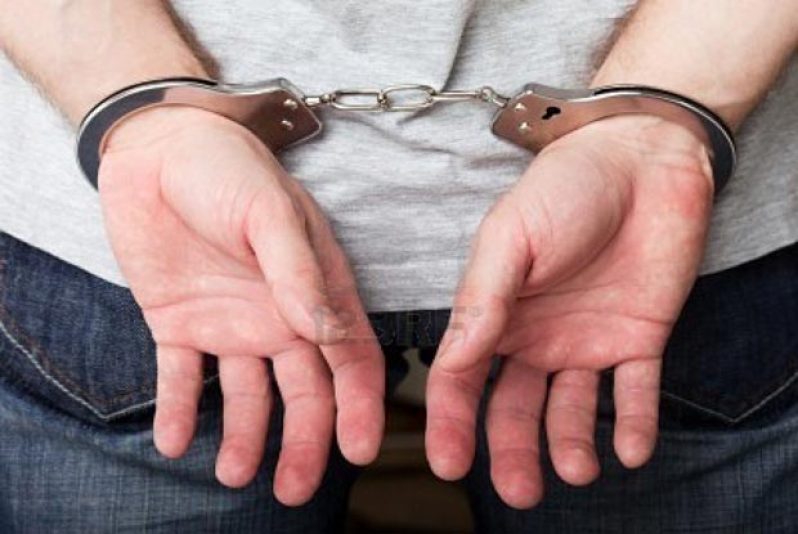THE FOURTH Meeting of the Washington-driven Basin Security Initiative (CBSI) concluded in Guyana last week on a high note of assurances, with the CARICOM Secretariat releasing a statement designed to boost optimism among citizens of this region who are deeply distressed over dreadful spreading gun-running and drugs-related criminality.After two days of conferencing, the Secretariat declared in its statement on Tuesday, titled “Caribbean and US showcase successes of CBSI”:
“Cocaine seizures across CARICOM member states, training of police personnel and the provision of fast boats to help curtail maritime criminal activities, are among the successes of the Caribbean Basin Initiative…”
Well, while disappointingly short on supporting data, the narrative was, nevertheless, encouraging from co-chair of the meeting, Juan Alsace of the USA, Director of the Office of Caribbean Affairs at the US State Department.
According to him, in order to “tackle crime effectively” in this region, “a careful husbanding of resources” from the USA and the Caribbean was required.
Mr Alsace was careful to avoid apportioning blame, but implicit in the statement released, ‘Uncle Sam’ is not pleased about the “efficient use of resources and information-sharing.”
However, the citizens of this region, plagued by the epidemic of criminality, need and deserve to know where the blame is really located: Among ‘us’, within CARICOM, or ‘them’ in Washington?
As if it were not depressing enough to learn of the prevailing epidemic of murders, armed robberies, violence against women and general criminality afflicting Caribbean Community states, there came an alarming report out of Suriname on the eve of the CBSI meeting that this region may now be linked with a “terrorist network” associated with Islamic groups in Iran and Lebanon.
It is perhaps coincidental that the news report out of Suriname’s capital, Paramaribo, came as representatives of the USA and CARCIOM were preparing for their meeting.
On their agenda was consideration of a report prepared by the Port-of-Spain-based CARICOM-created Implementation Agency for Crime and Security (IMPACS). The decisions are intended to enhance the outcome of the Fourth Annual Caribbean-US Security Cooperation Dialogue scheduled for December 5-6 in Washington. Hopefully, we may yet learn more of the “successes” of the CBSI after next month’s conferencing in Washington.
USA ‘silence’ on DR
Right now, it’s of relevance to observe that, given the spreading furore –beyond the Caribbean — over the recent controversial judgment by the Dominican Republic’s Constitutional Court (which has had the immediate effect of denationalising thousands immigrants of Haitian descent in that country), it is relevant of to note that the DR is party to a “joint implementation report” which was prepared for the CBSI meeting in Guyana.
It is to be wondered whether ANY of CARICOM’s representatives at that meeting expressed some concern over the implications “denationalising” thousands of Caribbean citizens located in the DR and the CBSI’s initiatives to deal with criminality and threats to regional security.
The US government is yet to signal its own perspective on the human rights implications of the new DR law on immigrants that’s being criticised, in and out of this region, as reflecting an unmistakable racist attitude.
However, the United Nations Human Rights Office in Geneva had denounced the Court’s ruling over a month ago; and the Organisation of American States (OAS) has decided to engage the Inter-American Court of Human Rights on the troubling issue.
Terrorism link in Suriname?
Also of significance for CARICOM and the wider grouping of countries involved in the Caribbean Basin Security Initiative, is that the report out of Suriname about the alleged “terrorist link” with Islamic groups in Iran and Lebanon, is credited to a New York-based Jewish human rights organization, known as the ‘Simon Wiesenthal Centre’.
Without offering ANY relevant information about this alleged terrorist link, the Jewish organisation said that the recent arrest in the USA of Dino Bouterse, son of Suriname’s President, Desi Bouterse, “validates its claims of an Iranian and Hezbollah sleeper network across the (Caribbean) region…”
Dino Bouterse was arrested in Panama on August 29 on charged with trafficking in drugs and weapons. His lawyers have since debunked the charges and contend that a “political dimension” was being pursued.
For his part, Suriname’s Foreign Minister, Winston Lackin, is currently engaged in rounds of special meetings with foreign diplomats accredited to that CARICOM state. His stated mission is to make quite clear that the government and country “were firmly opposed to all forms of terrorist activities…”
The Foreign Minister, who is reportedly also in contact with CARICOM counterparts, has urged foreign diplomats in Paramaribo to make “objective assessments”.
He said that the indictment against Dino Bouterse should not be viewed, in the absence of specific evidence, as having any connection with claims of a terrorist network associated with his country.
CARICOM seems to have more than a collective moral obligation to demand some EVIDENCE from the Jewish human rights organization about its allegation of this terrorist-linkage with Iran and Lebanon. It must not be treated as just a “problem for Suriname”.
Insofar as CBSI strategies to combat crime and safeguard national/regional security are concerned, it would be helpful should CARICOM governments consider the importance of appraising their respective jurisdictions of what’ s being done, in their name, via the CBSI, for which US$230 million have been committed for a three-year period .
It is felt to be quite relevant also for data to be provided to the region’s public on what’s specifically involved in the US$230 expenditures. For instance, payments for purchase of materials/equipment, as well as salaries and the level of “Caribbean expertise” in determining the implementation processes of the CBSI.
Guyana’s Prime Minister, Samuel Hinds, in addressing the opening session of the CBSI meeting, identified some eight “major crime challenges” facing the Caribbean region.
Among these he listed gun-related gang violence, drug trafficking, human trafficking and pointed to youth crime and violence as being the most challenging issue.
Analysis by Rickey Singh



.jpg)









